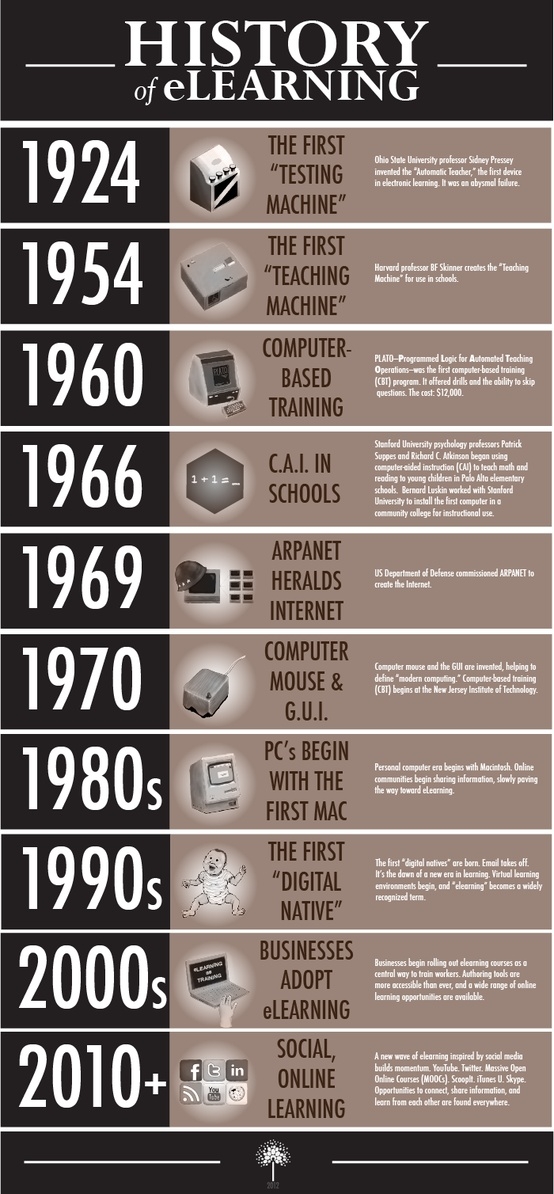The term ‘e-learning’ has only been in existence since 1999. When the word was first utilized, other terms – such as ‘online learning’ and ‘virtual learning’ – also began to spring up in search of an accurate description of exactly was e-learning was. However, the principles behind e-learning have been well documented throughout history, and there is even evidence that suggests that early forms of e-learning existed as far back as the 19th century.
- Exchange learning materials
- Do tests
- Communicate with each other in many ways
- Track and trace their progress
The environment was able to facilitate learning in quite an easy way: the product was simple to use, and for teachers it didn’t represent a steep learning curve. The 2000s In the 2000s, businesses began using e-learning to train their employees. New and experienced workers alike now had the opportunity to improve upon their industry knowledge base and expand their skillsets. At home, individuals were granted access to programs that offered them the ability to earn online degrees and enrich their lives through expanded knowledge. Pretty advanced stuff, hey? 2010 and the future The future holds a new wave of e-learning inspired by social media, Massive Open Online Courses (MOOCs), Selective Open Online Courses (SOOCs) and even websites like YouTube. Individuals and companies alike are taking the opportunity to use these different outlets to share information and learn from each other. Filtered sits on this wave, and has the cutting-edge technology to help any individual grow their knowledge base. As for the distant future of e-learning, let us all hope that Artificial Intelligence systems are nothing like what we saw in the Terminator Films. 



